
Delivering an Effective Test Process
Getting to the Root of Software Delivery Issues
Delivering an Effective Test Process
Overall Course Summary
A 2-day course which aims to help testers make the most efficient use of the time and resources they have available for testing on their projects. It won’t teach you how to test perfectly or find every single defect in an application. What it will do however is suggest tips and techniques to help attendees build a lightweight and practical test process which allows them to focus on key elements of the delivery under test.
Download Course Summary
The course will also stress that the best testing in the world is of little value if its results are not communicated properly to colleagues and stakeholders and provides suggestions as to ways in which testers can actively assist project management in achieving a successful go-live
Day 1 of the course focusses on preparation for testing, and day 2 focuses on the execution of tests and dealing with the issues and defects which result.
The course is designed to be interactive and attendees will be expected to contribute their own experiences (good and bad) as we move from test preparation through defect management to signoff and go-live. Where appropriate participants will be asked to work on short exercises designed to put some of the processes and principles outlined into practice
The course assumes that attendees have a basic knowledge of the testing process but is designed not just for fulltime testers but for anyone with a vested interest in improving the quality of testing on the projects with which they are involved.
New Paragraph
Day 1 - Preparing for effective delivery
Session
Description
Training Material

- Sets the scene for the sessions which follow.
- Provides an overview of what is covered in the course and how the contents are split between days 1 and 2
- Covers housekeeping issues such as toilet facilities, breaks, fire exits etc.

- Explains what the true purpose of testing really is (which may not be what some people expected it to be) and what an effective test process needs to deliver to meet this goal.
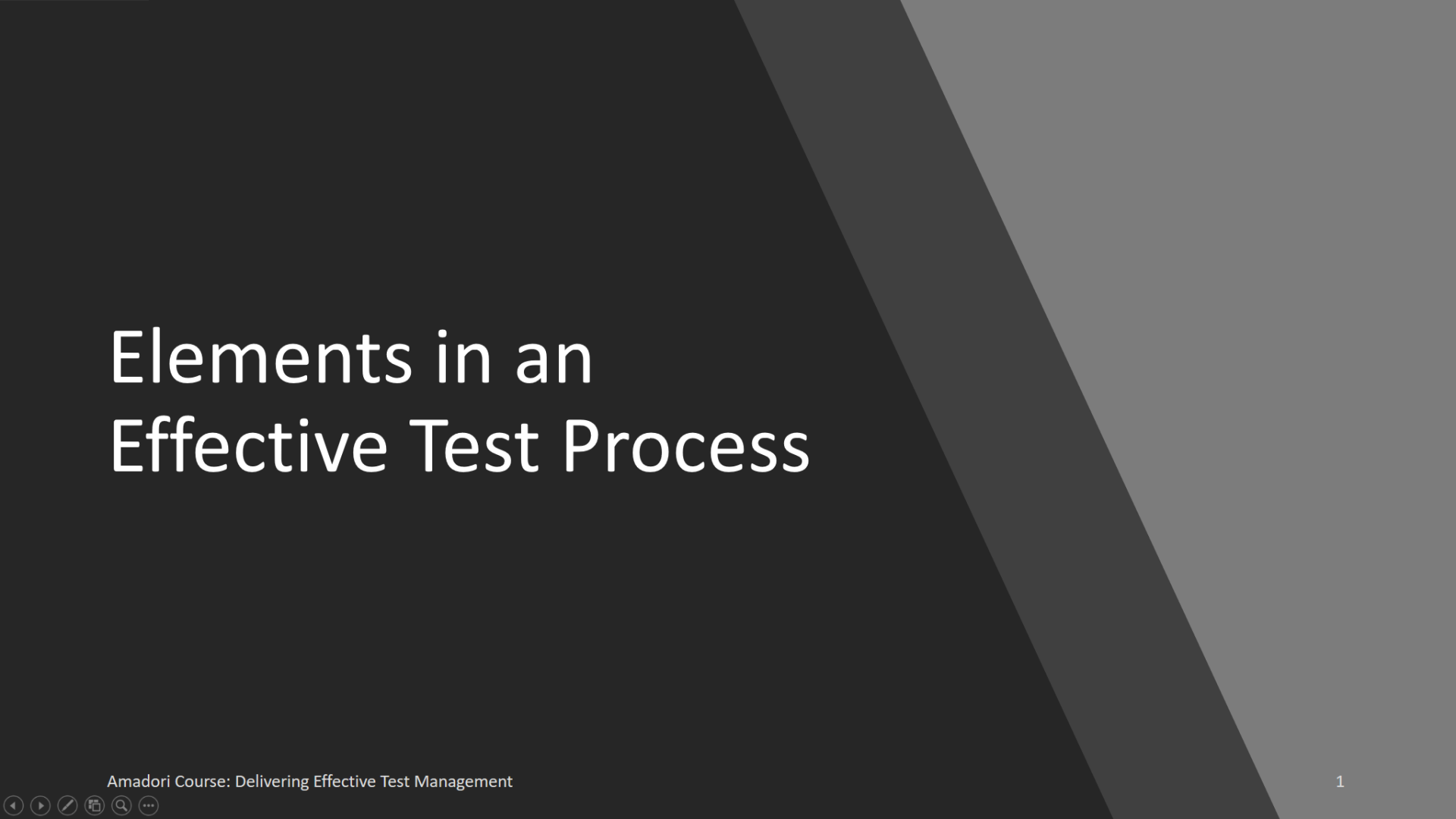
- Describes the 5 elements which make up an Effective Test Process and how each relates to the others

- Covers the key role that requirements play in the testing process
- Explains the difference between testable and non-testable requirements
- Show methods by which non testable requirements can be made testable
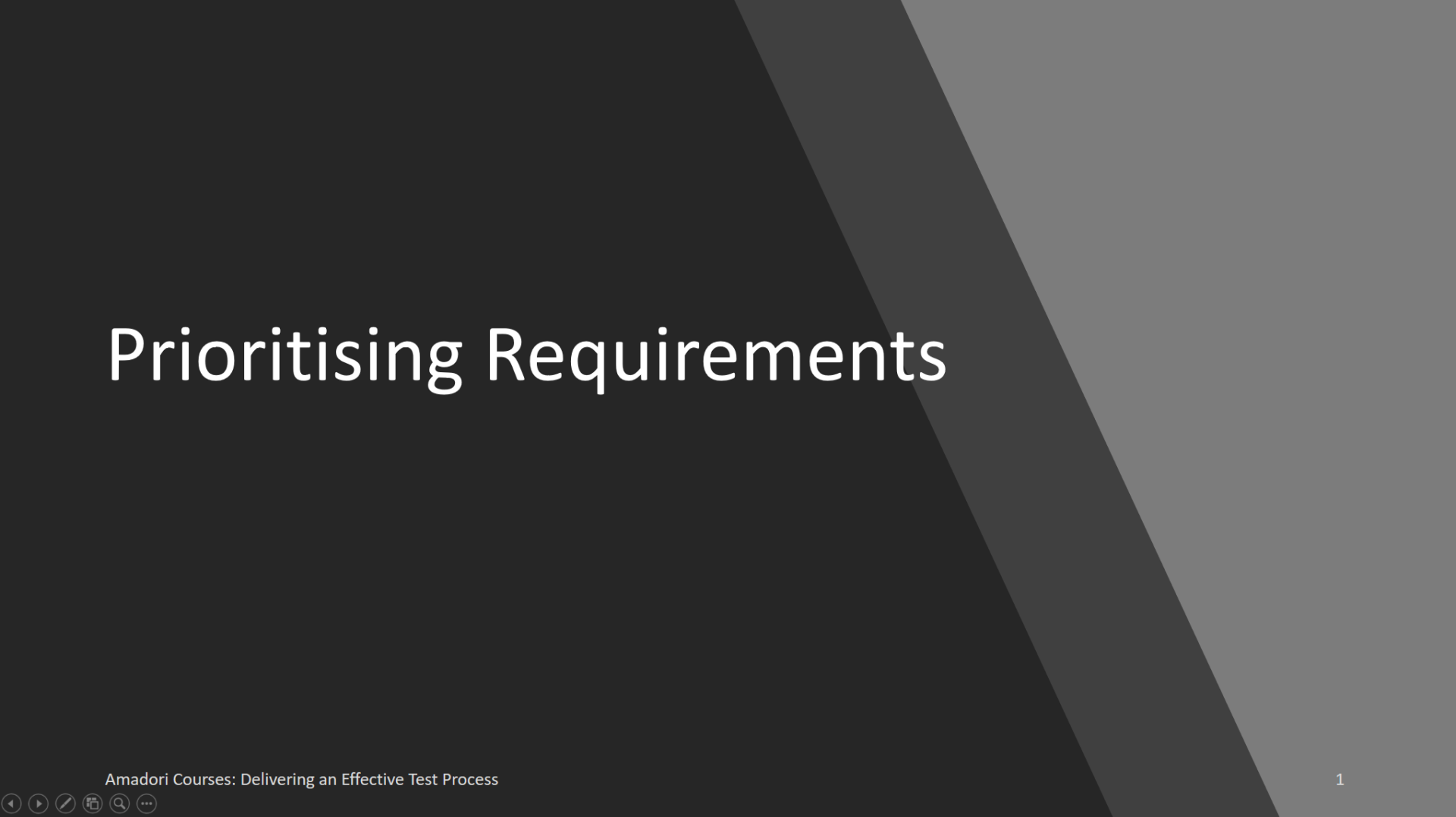
- Not every test requirement is as vital to the success of the delivery as the next
- This session covers methods of determining the relative priority of requirements so an appropriate level of focus and resources can be applied to each one
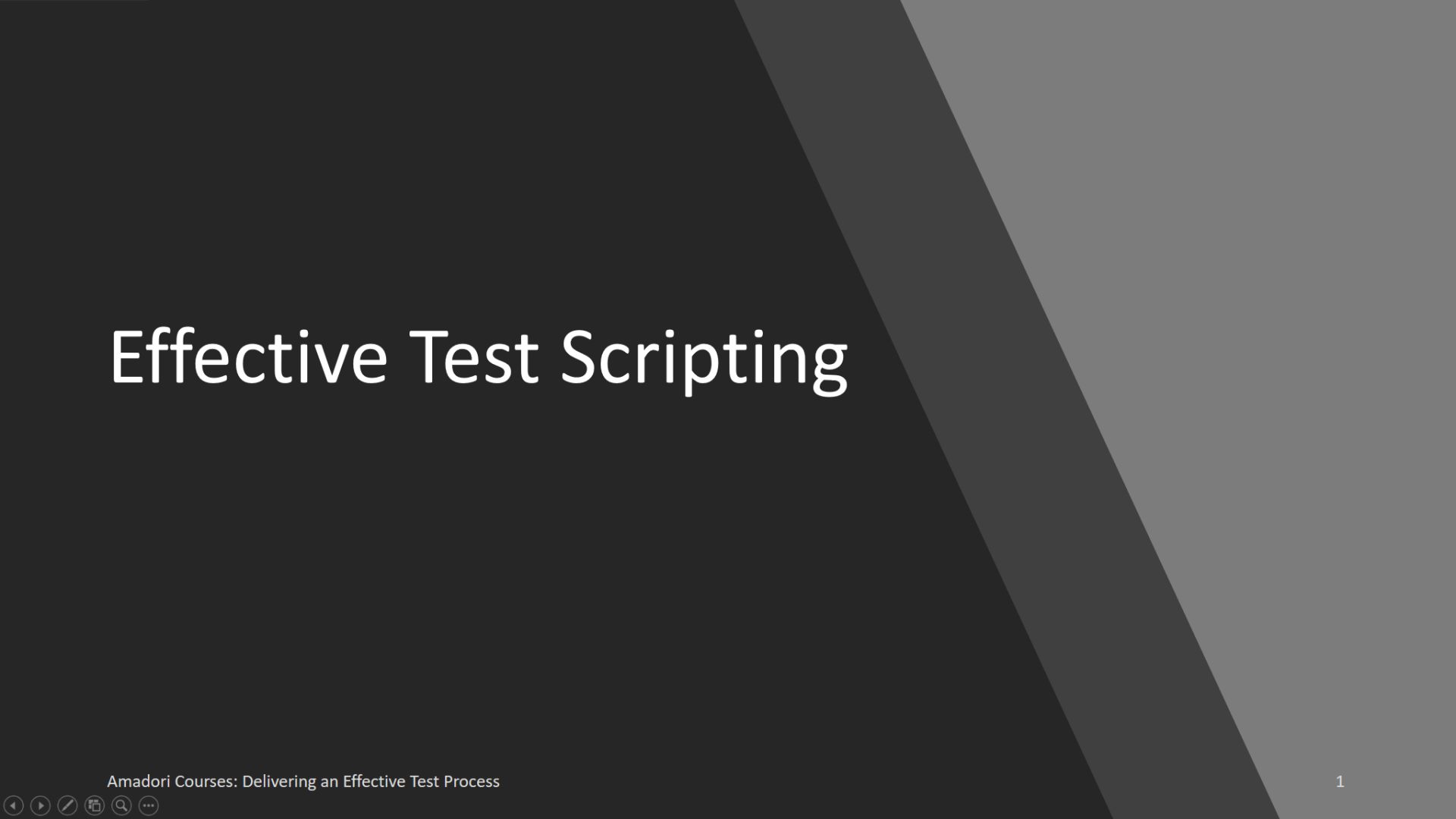
- Covers key principles to bear in mind when writing test cases
- Explains how to make testcases flexible and reusable

- How to script and execute large numbers of tests quickly and efficiently
- How to assess when complex logic has been adequately covered by your testing
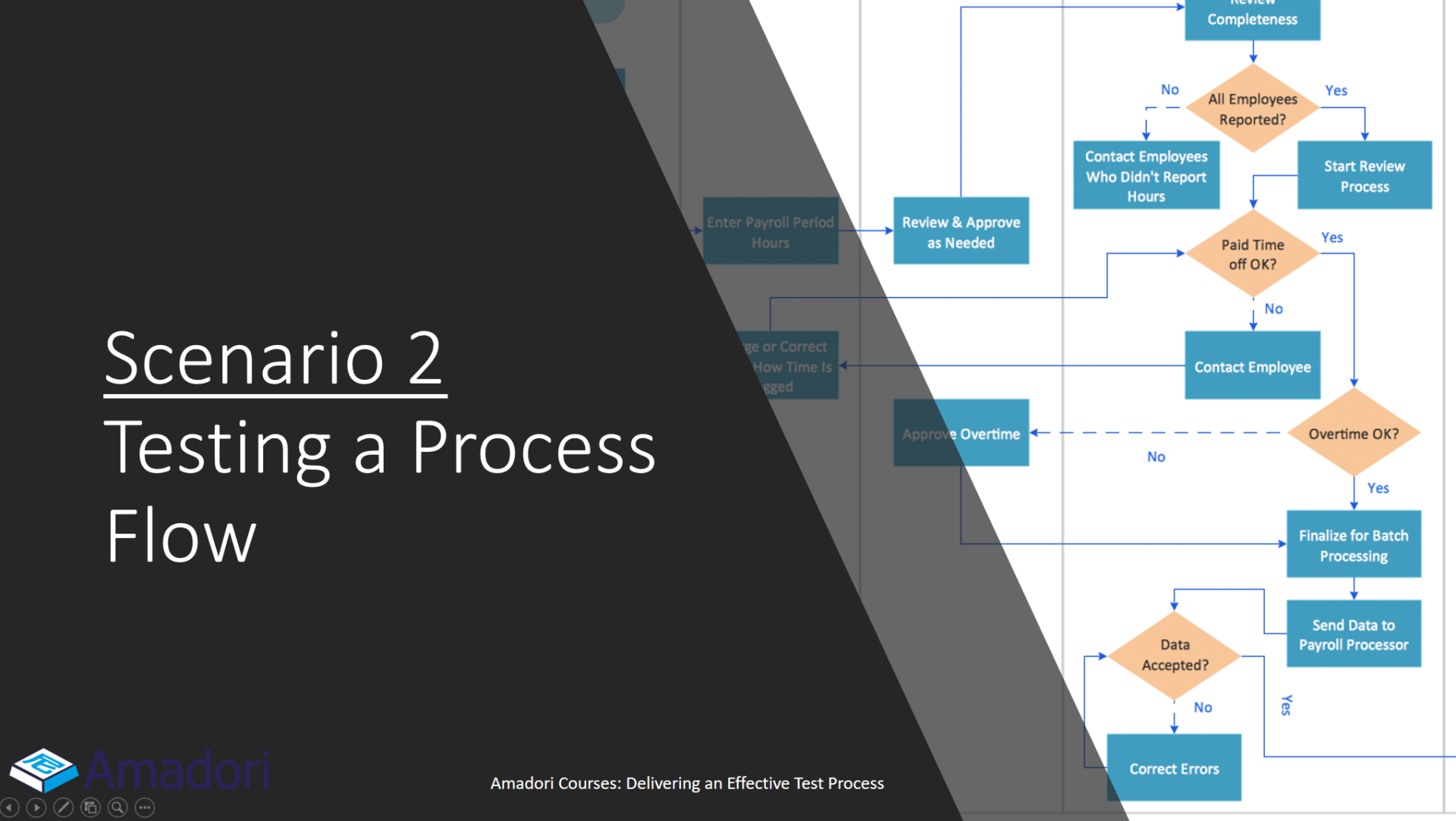
- How to write scripts which properly test a complex workflow

- How to ensure that a delivery is effectively tested even when expected results are not available and fully detailed test scripts cannot be produced

- How to map your scripts against requirements in order to provide accurate measures of test coverage
Day 2 – Delivering on your Promises
Session
Description
Training Material
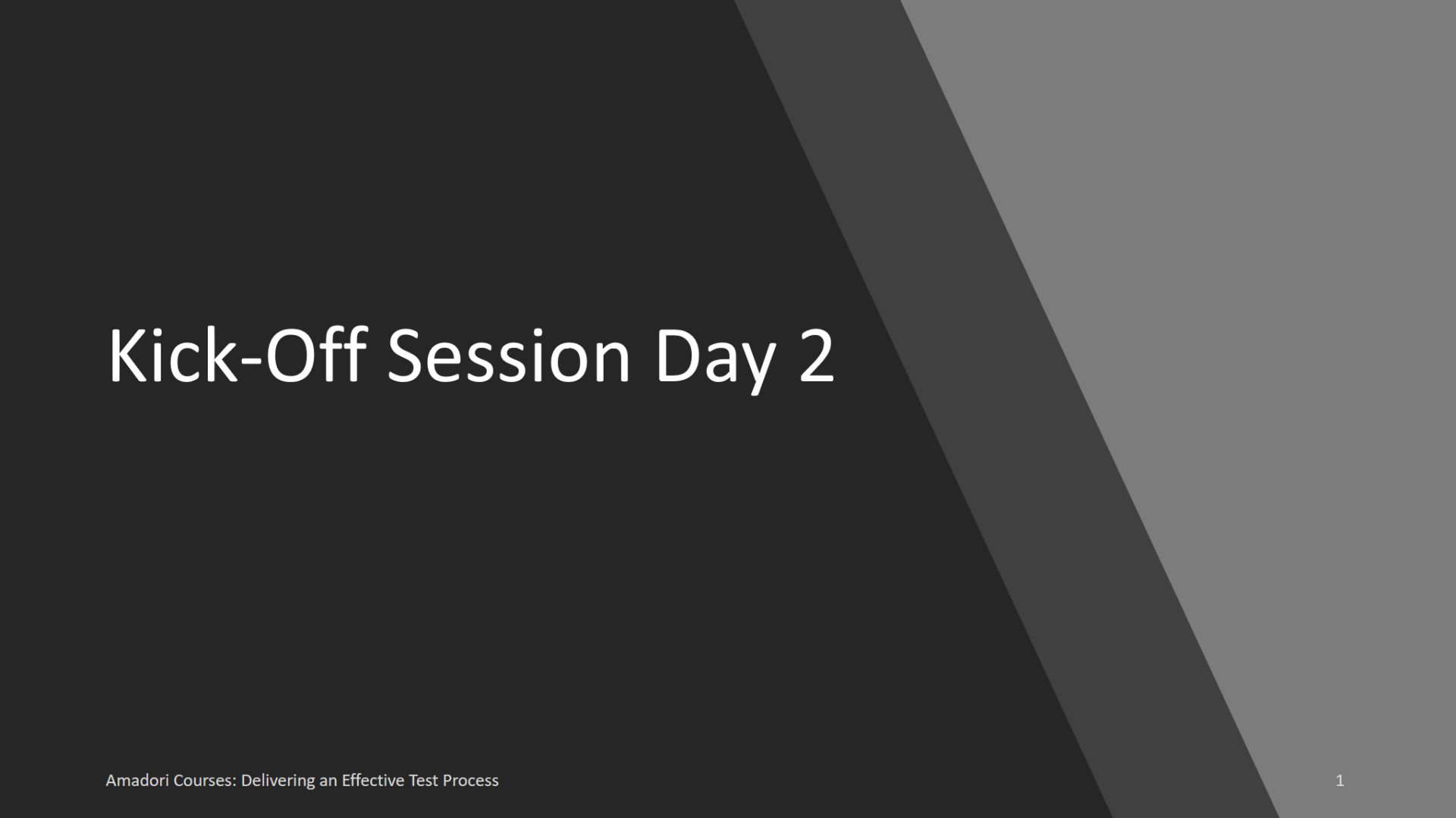
- Revisits what was covered in Day 1
- Explains how this leads into what will be covered in Day 2
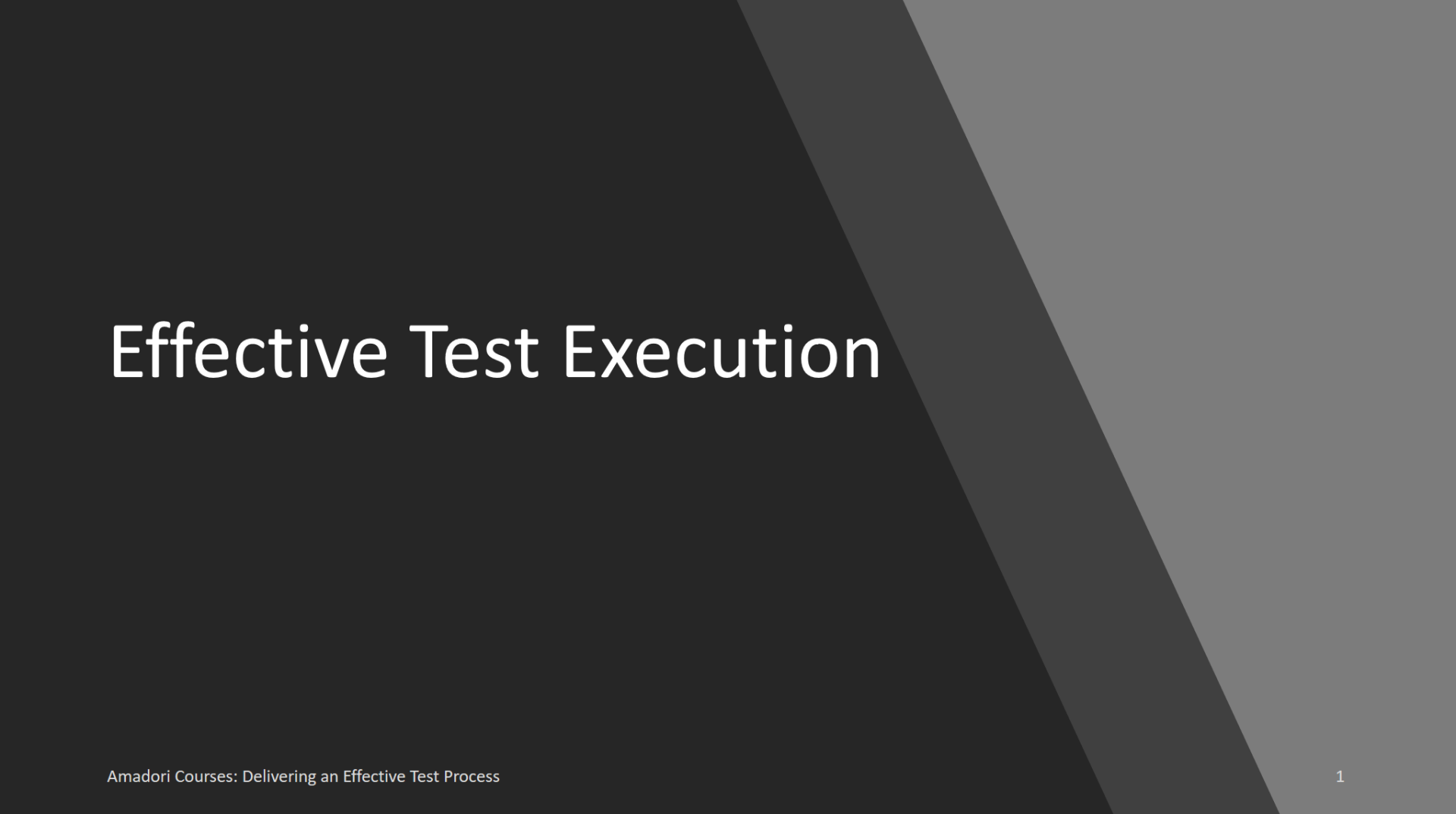
- Provides a series of guidelines as to ways of keep test execution on track
- Reviews common issues which may occur and suggests ways of dealing with them, or better still, avoiding them happening at all!
- Emphasises that the more work you can do before test execution starts the easier the process of running your tests is likely to be

- Reviews methods of providing accurate and useful metrics about test progress which allow stakeholders to make informed decisions about the status of the project and the date at which it will be ready to go-live

- Describes the 4 key elements in any effective defect management process
- Sets the scene for the more detailed sessions which follow
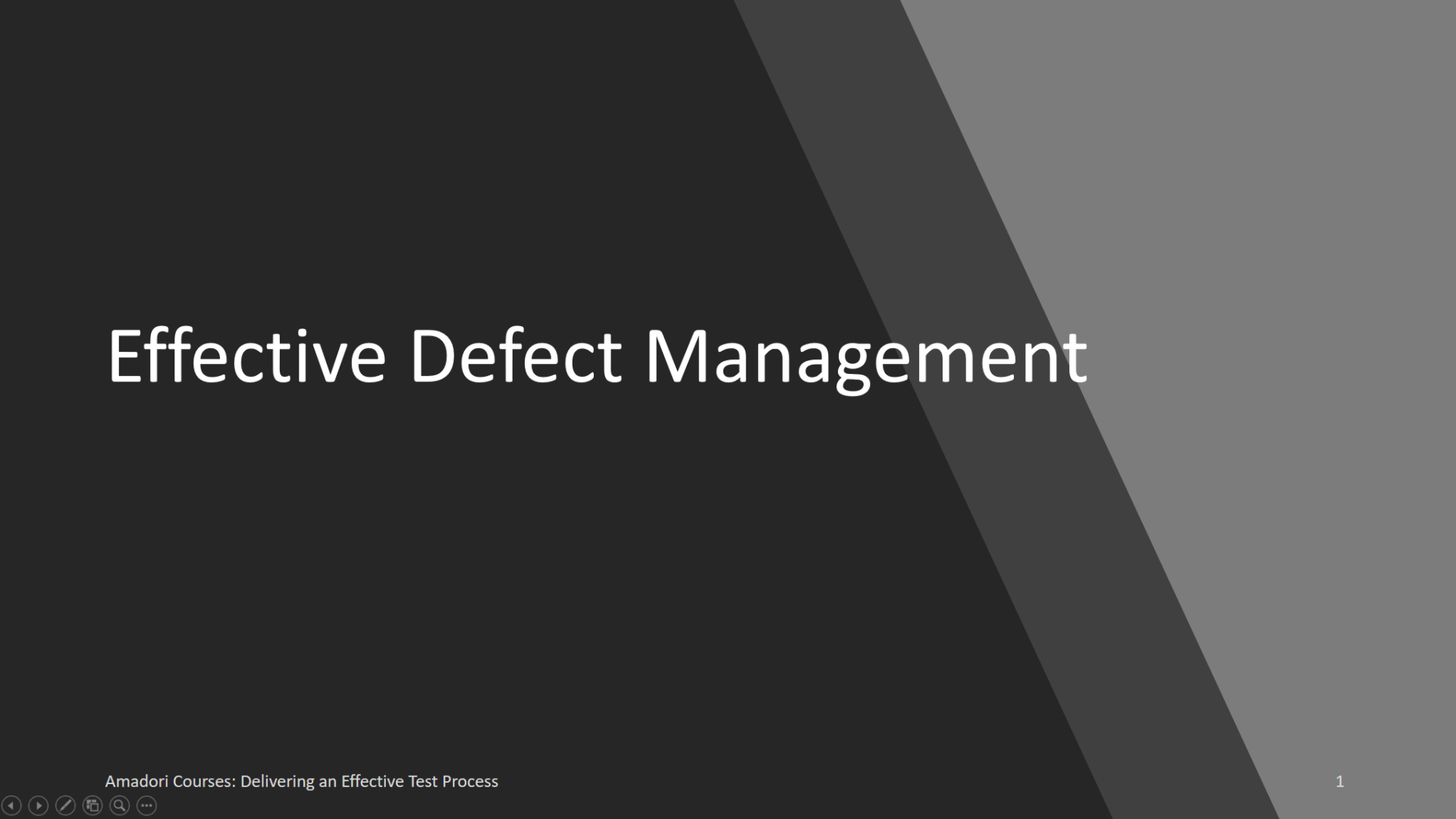
- Examines the detail required within an effective defect management process covering areas such
- Defect Records
- Defect Workflow
- Prioritisation

- Reviews issues often encountered with the Triage process and suggests ways in which when working properly Triage can assist in delivering an effective test process

- Reviews the different types of reports and metrics that testers may be required to produce
- Suggests ways in which these reports can be made useful to stakeholders
- Reviews ways of reducing the overhead of producing such a wide range of reports
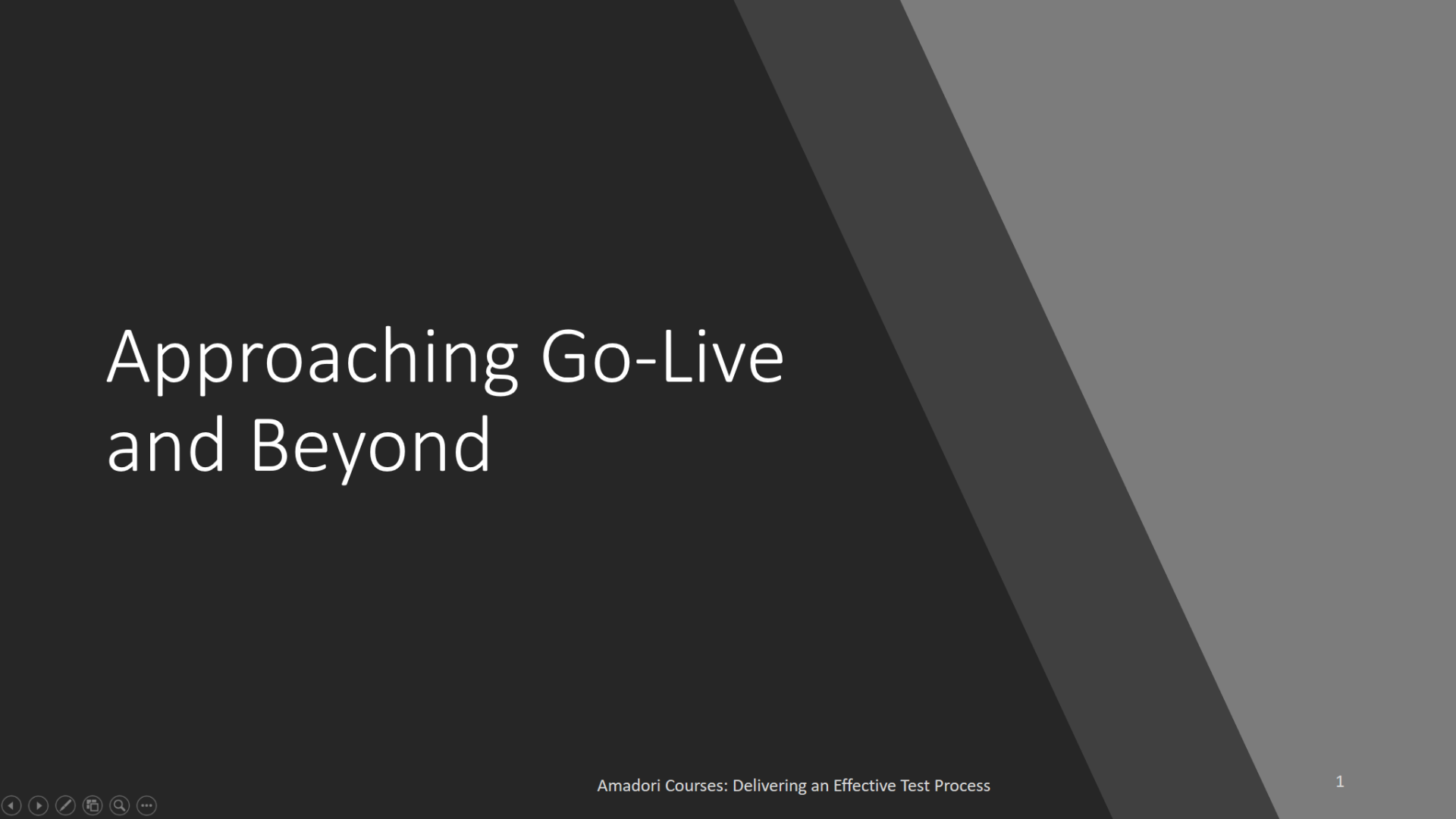
- How to ensure that your testing activity is focussed on supporting the Go-Live process
- Examines ways of forecasting a likely go-live date and suggests how testers should prepare for Go-No meetings

- How to ensure that your testing activity is focussed on supporting the Go-Live process
- Examines ways of forecasting a likely go-live date and suggests how testers should prepare for Go-No meetings

